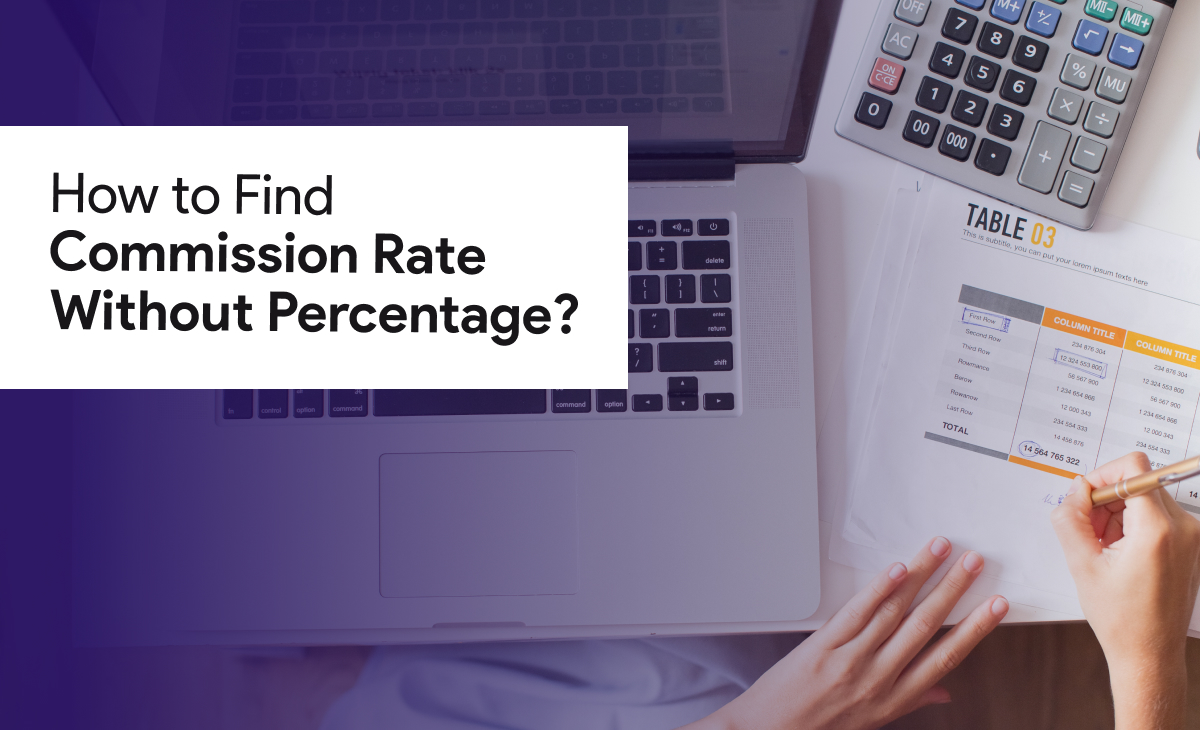Being a business owner, sales rep, employer, sales manager, freelancer, retailer, or any individual who is involved in sales, marketing, or business development, you must know how to calculate commission rates without percentages.
You might also want to understand better how much money you are making from each sale or deal. So yes, in this article, we will discuss calculating the commission rate, but here is a catch. Forget about the percentage for a moment.
Why is knowing about the Commission Rate important?
There are many reasons for that, but let us quickly know about a few reasons. So, firstly, it allows you to calculate the money you are earning from each deal you close. It becomes more critical when you are planning a budget for the month, and you need to know the commission calculation to be able to analyze everything perfectly.
Calculating the right commission rate can help you negotiate. If you are not happy with the current rate, then you can ask to raise the commission rate.
It can also help you improve your strategy because it will enable you to know which product or service is helping you make more money.
What is the Commission Rate?
The commission rate is the percentage of profit that you receive from each sale. For example, company “A” sells a product for 500 rupees, and it has a 10% commission rate. Employees or salespersons will receive an amount of 50 every time they sell that product.
How is the Commission Rate Calculated?
There is a simple formula for calculating the commission rate
Commission rate = Commission Amount/Total Sales or Revenue x 100
Here are a few simple steps to help solve your query “ How To Calculate Commission Rate Without Percentage.”
- Know the amount of Commission you are getting or you want to earn for a specific product.
- Use the above formula based on the Commission received and the total revenue.
It is essential to know the total commission rate you are getting from each deal because, from that, you can compare the overall sales you are making and the total revenue you are generating. By knowing this, you will be able to understand if you are receiving a profitable price for your product or services.
Types of Commission Rates or Sales Commission Structures
Straight Commission or revenue commission: in this type of commission plan, the salesperson will receive a fixed percentage amount on the total revenue generated by sales. For example, if you are selling a product of rupees 100,000 with a commission percentage of 10. The commission amount would be 10,000.
Base salary plus Commission: in this, the Commission is not based on the sales generated. The salesperson will receive a base salary.
Tiered Commission: In the tiered commission structure, the salesperson will receive a commission on each sale, and the commission rate will increase as they reach specific sales goals or revenue goals.
Residual Commission: in residual Commission, the sales agent gets a commission for bringing in customers who keep buying over time. Salespersons receive a percentage of the revenue that customers generate. It is like a bonus that keeps coming as long as customers keep buying.
Territory Commission: salespersons earn money based on a fixed rate for their area. Their earning depends on how much they sell and generate revenue in their territory. The commissions will be divided equally among all the salespersons based on the total sales.
In this model, sales representatives earn money based on a fixed rate for their area. How much they make depends on how much they sell and the revenue in their territory. The commissions they get are divided equally among all reps based on the total sale.
What are the differences between direct and indirect sales?
Direct Commission is based on the number of sales. If you sell more, you will earn more Commission.
Whereas the Indirect Commission is different. You get paid for the sales, but it has nothing to do with how much you sell. Instead of that, you might get paid for things like finding potential customers and doing tasks that help the sales team. Simply, it is like getting rewarded for helping the team behind the scenes.
Pros of knowing the commission rate
Knowing about sales commission rates can help you calculate how much money you are making from each sale.
Understanding your commission rate may help you to increase your sales.
After knowing your commission rate, you will be able to negotiate better and seek higher rates based on your performance.
Cons of knowing the commission rate
Knowing commission rates can lead to a comparison between colleagues.
High commission rates provided by any company can create pressure to perform consistently better than capacity.
Conclusion
If you have Commission rates based on income, then you must have spent hours calculating your actual income. However, in this article, we have clearly mentioned “how to find commission rate without percent.”
Try this method to find out the total income you are generating.
Frequently Askes Questions (FAQ’s)
Q.1 Can commission rates be negotiated?
Yes, commission rates are negotiable, especially when you are in an industry where sales volume plays a significant role. The salesperson can negotiate to get higher commission rates based on their performance.
Q.2 Are commission rates fixed or variable?
The rates are variable depending upon various factors such as type of industry, type of product that has to be sold, experience of salesperson, and many more. Every company applies different commission rates for other products.
Q.3 How do you determine the commission rate?
The commission rates are determined through negotiations between the seller and the salesperson.
Q.4 How do you calculate gross margin commission?
Gross margin is calculated by subtracting the price of sold products from the total sales.

